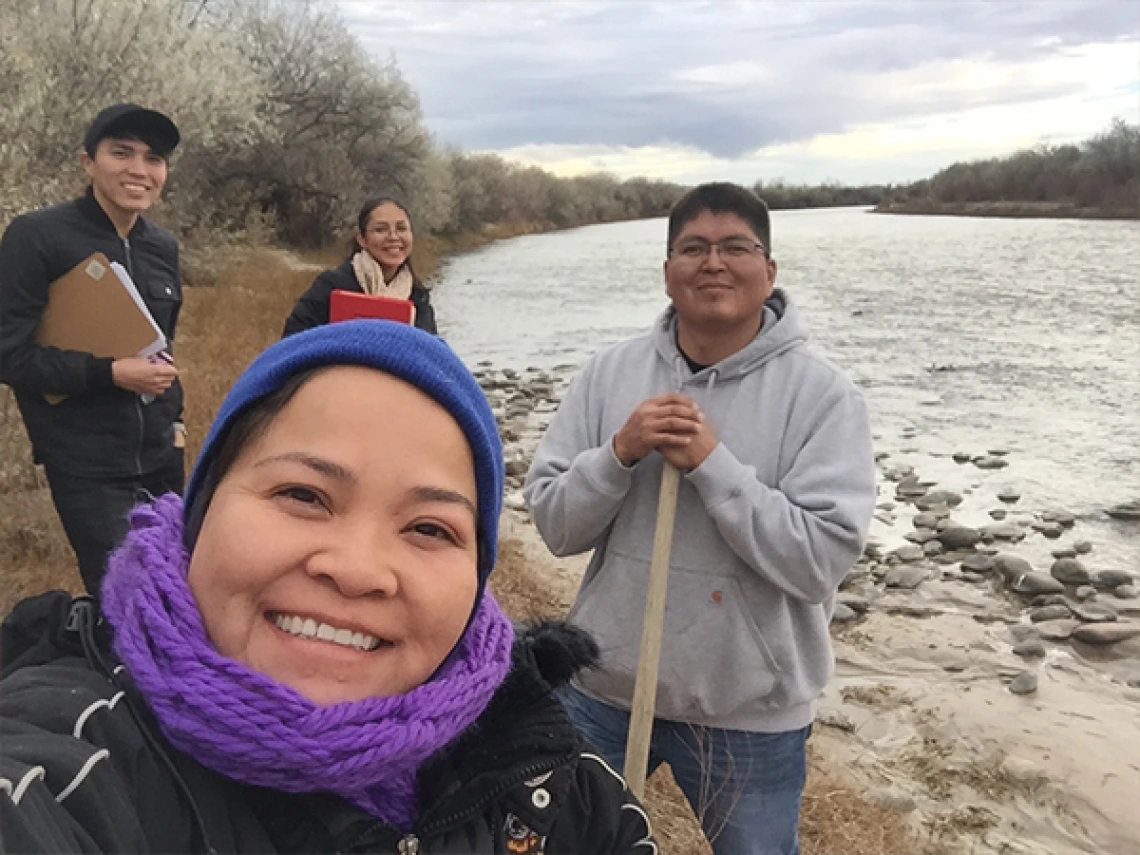UArizona, Diné College to Train Next Generation of Navajo Water Scientists

The University of Arizona and Diné College have been awarded a $500,000 grant from the U.S. Department of Agriculture to collaboratively train the next generation of Navajo water scientists.
The grant comes from the USDA National Institute of Food & Agriculture through the Tribal College Research Grant Program and will provide Navajo youth technical and hands-on experience in microbiology, molecular biology, chemical and microbial water analysis, and pressure-driven membrane processes.
Through the collaborative research program, students at Diné College – a public tribal college in northern Arizona – will also learn about traditional and advanced water and wastewater treatment procedures. The multidisciplinary research team includes researchers from both land-grant institutions.
Dr. Karletta Chief (UA SRC Community Engagement Core Lead Investigator and Environmental Science Professor) is the Co-principal investigator in this grant. Other UArizona collaborators will include Dr. Vicky Karanikola (Chemical and Environmental Engineering professor), Dr. Robert Arnold (Professor emeritus of Chemical and Environmental Engineering) and Dr. Charles Gerba (Professor of Environmental Science).
Diné College collaborators are Dr. Shazia Tabassum Hakim (Principal Investigator and a Biomedical Science Professor) and Director Dr. Benita Litson.
The research team will identify and address the possible presence of microbial and chemical contaminants in treated wastewater, the use of pressure-driven membrane filtration systems to polish effluent before reuse, and potential technical impediments to agricultural use of polished effluent.
"Water scarcity is increasing day by day, and we need our own Navajo water scientists who understand the traditional values associated with water and its importance. For Navajos, water is life," said Dr. Hakim. "We want our students to see all aspects of water treatment and management and use them according to their own culture, own traditions and own needs.”
"Arizona is in a long-term drought, and water resources will continue to decline. It is imperative that innovative ways of water recycling and conservation be explored," said Dr. Chief.
This story was modified and originally published by UANews

